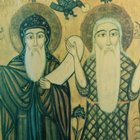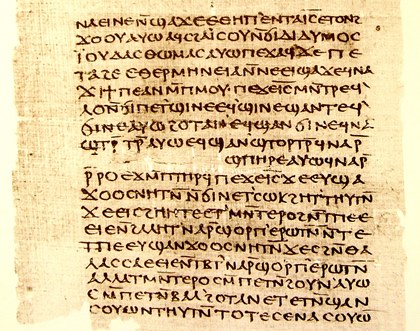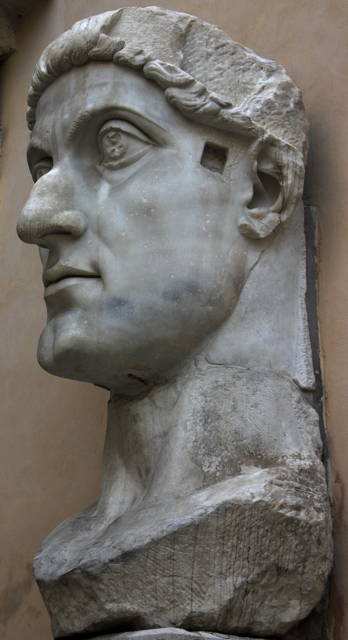Profile
- Research Subject
Currently studying the history of ancient Christianity (especially the period before Constantine the Great), with special attention paid to the phenomenon of translation in ancient Christian literature (e.g., from Greek into Syriac or into Coptic etc., and also from Syriac into Greek).
- Research Fields
- History of ancient Christianity, Literature of the Christian Orient (ancient and medieval), Classical philology
- Faculty - Division / Research Group / Laboratory
- Division of Humanities / Research Group of Cultural Representations / Laboratory of European and American Literature
- Graduate School - Division / Department / Laboratory
- Division of Humanities / Department of Cultural Representations / Laboratory of European and American Literature
- School - Course / Laboratory
- Division of Humanities and Human Sciences / Course of Linguistics and Literature / Laboratory of European and American Literature
- Contact
Office/Lab: 409
Email: jsattoda(at)let.hokudai.ac.jp
Replace “(at)” with “@” when sending email.Foreign exchange students who want to be research students (including Japanese residents) should apply for the designated period in accordance with the “Research Student Application Guidelines”. Even if you send an email directly to the staff, there is no reply.- Related Links
Lab.letters


Reconstructing the history of ancient Christian literature
Centered on the Bible and its translations
In order to understand what Christianity is, it is absolutely indispensable to know and ponder on what Christianity was in antiquity. Going through various problems contained in the history of ancient Christianity, I have recently been paying more and more attention on the problems such as how ancient Christian literature, starting with the Bible (especially the New Testament), was diffused, or to put it differently, when and in which language those documents which are preserved today in one or another language (Greek, Coptic or Syriac, etc.) were originally written. The history of ancient Christian literature, especially in the case of the Greek-speaking Christian Orient, involves translations into various vernacular languages, a feature which is markedly lacking either in the Latin-speaking Christian West or in the Islamic Orient (in the sense that, religiously speaking, the Qur’an is not to be translated). Writing a history of ancient Christian literature including translations into various languages is one of the main objectives of my research.
Learning many languages is not a burden, but constitutes a forte
Here is the milieu where intensive research can be realized
In order to pursue research such as mine, it is necessary to learn, not only modern Western languages (English, German, French etc.), but also classical languages (Greek, and Latin), as well as various languages of the Christian Orient (Coptic, Syriac etc.). One might then think of an enormous obstacle. However, learning many languages is not necessarily a burden, but rather constitutes a forte, because not so many scholars have good commands of all these languages even in the West.
In the Graduate School of Letters of Hokkaido University there are many scholars of varied disciplines, and even I, whose speciality is doubtless quite peculiar, have several colleagues of similar specialities, which I find really stimulating. And Hokkaido is a place where, since the cost of leading life here is less than in other regions of Japan, you can concentrate on your research more intensively. I will do my best to support promising students who intend to become researchers of international level.




